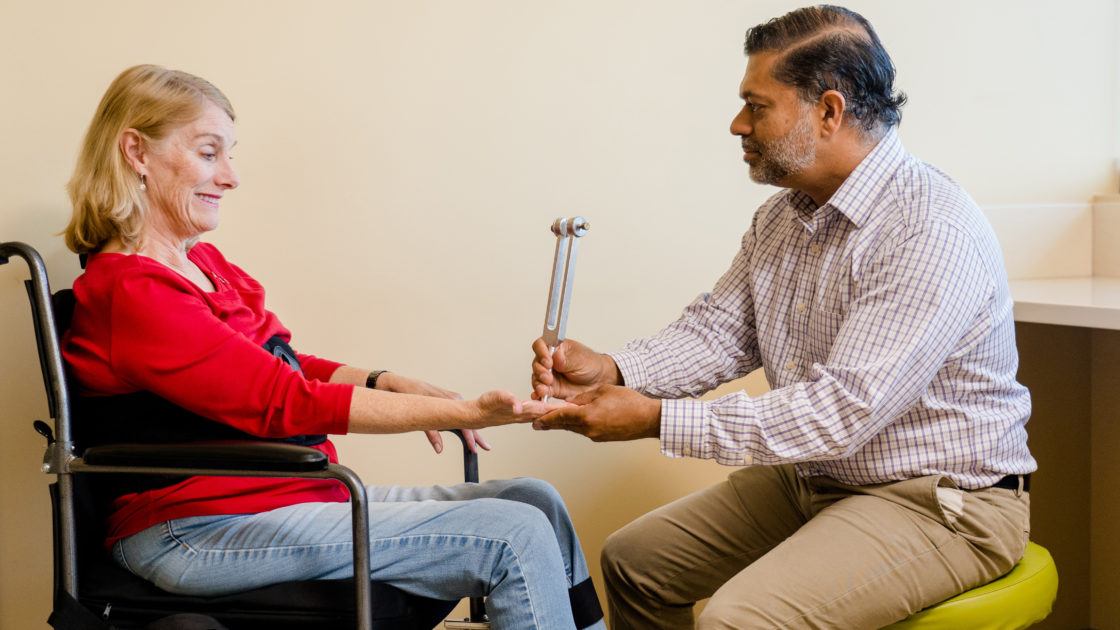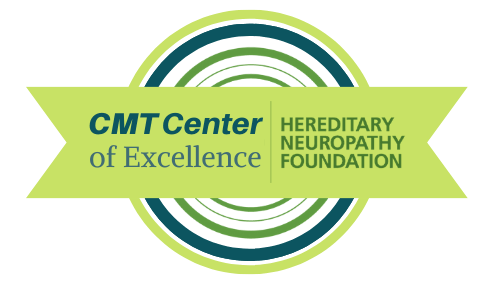
Barrow Named Center of Excellence for Hereditary Neuropathy
The Hereditary Neuropathy Foundation (HNF) has named Barrow Neurological Institute a Center of Excellence, making it the only facility in Arizona to earn this distinction.
The organization awards this recognition to centers that demonstrate excellence in both the clinical care and research of hereditary neuropathies. HNF also helps to expand each center’s role as a community hub for the care, research, and education of hereditary neuropathies.
“We are delighted to be named a Hereditary Neuropathy Foundation Center of Excellence,” said neurologist Dr. Shafeeq Ladha, director of the Gregory W. Fulton ALS and Neuromuscular Disease Center at Barrow. “This designation will help us continue offering state-of-the-art care for hereditary neuropathies while also attracting research studies that this highly involved patient population wants to participate in.”
Hereditary neuropathy describes a group of inherited disorders that damage the peripheral nervous system. Peripheral nerves reside outside of the brain and spinal cord. The most common type is Charcot-Marie-Tooth (CMT) disease, which affects both sensory and motor nerves.
When motor nerves become damaged, they can no longer initiate muscle movements. This results in muscle weakness and wasting in the limbs that worsen over time. Damage to the sensory nerves can affect a person’s ability to feel stimuli such as heat, cold, and touch.
There is no cure for hereditary neuropathies, only supportive treatments to address the symptoms. Some forms may only produce mild symptoms, but others can cause physical disabilities.
The HNF strives to increase the awareness and accurate diagnosis of CMT and other inherited neuropathies and to improve the lives of families affected. They also fund research that could lead to better treatments or even cures for these disorders.
“By partnering with HNF, we further strengthen the connection of the Fulton Neuromuscular Center with hereditary neuropathy patients in order to find the next generation of treatments for these diseases,” Dr. Ladha said.

